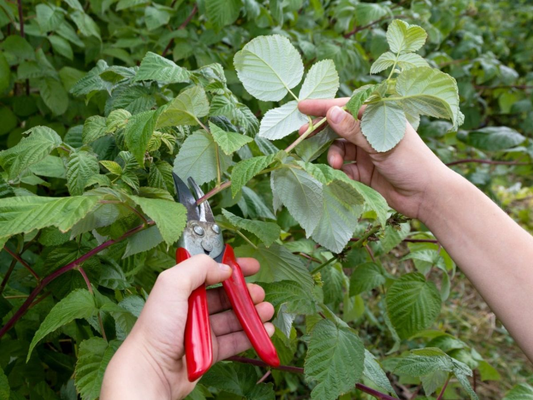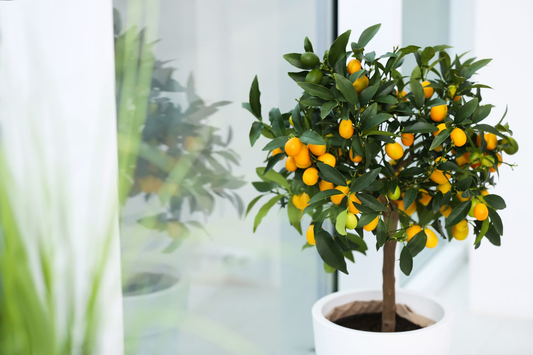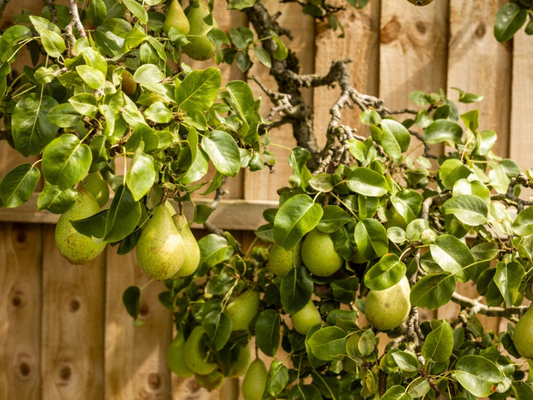How to Start a Small Plant Nursery: Tips for Turning Your Passion into Profit
Share
Table of Contents
1. Introduction
The interest in small plant nurseries has been blooming over recent years, driven by a growing appreciation for gardening, sustainability, and the therapeutic benefits of nurturing plants. As people spend more time at home, many are discovering the joys of cultivating their own greenery. Whether it's creating a lush indoor environment or starting a small outdoor garden, the trend of home gardening has encouraged aspiring entrepreneurs to consider establishing their own plant nurseries.
Combining passion with business acumen is essential for anyone looking to succeed in this field. A love for plants is crucial, but understanding the fundamentals of running a business is equally important. Here are some key reasons why this combination is vital:
- Passion Drives Commitment: A genuine interest in plants fuels motivation and dedication, helping nursery owners navigate challenges.
- Business Skills Enhance Growth: Knowledge of marketing, finance, and customer service can significantly impact the success of a nursery.
- Understanding Trends: Combining passion with market insights enables nursery owners to stay ahead of trends and meet customer demands.
This article aims to provide practical tips for starting a small plant nursery, covering essential aspects such as market research, business planning, sourcing plants, marketing strategies, and more. Whether you're a gardening enthusiast or seeking a new business venture, this guide will equip you with the knowledge to turn your passion for plants into a thriving nursery.

2. Understanding the Basics of Plant Nurseries
A plant nursery is a facility where plants are propagated, grown, and sold. Nurseries serve as a critical link between plant growers and consumers, providing a variety of plants for landscaping, gardening, and agricultural purposes. They can range in size from small home-based operations to large commercial enterprises.
There are two primary types of nurseries:
-
Wholesale Nurseries:
- Sell plants in bulk to retailers, landscapers, and garden centers.
- Often focus on large-scale production and may offer a limited variety of species.
- Typically provide lower prices due to higher volumes and direct sales.
-
Retail Nurseries:
- Sell plants directly to consumers, including individual gardeners and homeowners.
- Often feature a wider variety of plants, gardening supplies, and related products.
- Focus on creating an engaging shopping experience for customers.
Knowing your niche is crucial when starting a plant nursery. Your niche determines the types of plants you will grow and sell, helping you to target specific customer segments. Consider the following options:
- Houseplants: Popular among urban dwellers and those seeking indoor greenery.
- Ornamental Plants: Focus on decorative plants for landscaping and gardening.
- Vegetables: Cater to the growing demand for home gardening and sustainable food sources.
Understanding these aspects will help you make informed decisions as you establish your nursery and appeal to your target market.
3. Researching Your Market
Researching your market is a vital step in starting a small plant nursery. Understanding who your customers are, what they want, and how to position your nursery effectively will significantly influence your success. Here are key areas to focus on:
3.1 Identifying Your Target Audience
Identifying your target audience allows you to tailor your offerings and marketing strategies to meet their specific needs. Consider the following groups:
-
Hobbyists:
- Individuals passionate about gardening, often seeking unique and rare plants.
- May appreciate educational content and workshops.
-
Landscapers:
- Professionals looking for bulk plants to use in projects.
- Value quality, availability, and competitive pricing.
-
Restaurants:
- Establishments interested in edible plants and herbs for their menus.
- May seek partnerships for fresh produce and unique ingredients.
3.2 Analyzing Local Competition
Understanding your local competition helps you identify gaps in the market and areas for differentiation. Here are steps to analyze competitors:
-
Identify Local Nurseries:
- Make a list of existing nurseries and garden centers in your area.
- Note their product offerings, pricing, and customer service practices.
-
Evaluate Strengths and Weaknesses:
- Analyze what competitors do well and where they may fall short.
- Look for opportunities to improve upon their services or product selection.
3.3 Assessing Market Demand for Specific Plants
Understanding market demand will help you make informed decisions about what plants to grow and sell. Consider the following approaches:
-
Survey Potential Customers:
- Conduct surveys or interviews with local gardeners and landscapers to gauge their preferences.
- Ask about the types of plants they are most interested in purchasing.
-
Research Trends:
- Stay updated on gardening trends through online forums, gardening blogs, and social media.
- Pay attention to which plants are trending in popularity and consider stocking them.

4. Creating a Business Plan
Creating a comprehensive business plan is essential for the successful launch and operation of your small plant nursery. A well-crafted business plan serves as a roadmap, guiding your decisions and helping you stay focused on your goals. Here are the key components of a successful business plan:
4.1 Components of a Successful Business Plan
-
Executive Summary:
- A brief overview of your nursery, including your mission statement and vision.
- Summary of your goals, target market, and unique selling proposition (USP).
-
Market Analysis:
- In-depth analysis of your target audience, including demographics and preferences.
- Evaluation of the competitive landscape and identification of market opportunities.
-
Marketing Strategies:
- Outline of your branding, advertising, and promotional tactics.
- Strategies for customer engagement and building community relationships.
-
Financial Projections:
- Detailed forecast of your expected income, expenses, and profitability over the first few years.
- Break-even analysis to determine when your nursery will become financially self-sustaining.
4.2 Importance of a Business Plan for Securing Funding
A well-prepared business plan is crucial when seeking funding for your plant nursery. Here’s why:
- Demonstrates Seriousness: A detailed business plan shows potential investors and lenders that you are committed and have thoroughly researched your venture.
- Clarifies Your Vision: It articulates your business goals and strategies, providing clarity on how you plan to achieve success.
- Facilitates Funding Discussions: Financial projections and market analysis make it easier to discuss funding needs with banks, investors, and grant organizations.
- Helps Manage Risk: A business plan allows you to identify potential risks and challenges, enabling you to develop strategies to mitigate them.
5. Selecting the Right Location
Selecting the right location for your small plant nursery is a critical decision that can significantly impact your business's success. The ideal site should not only accommodate your plants but also provide easy access for customers. Here are key factors to consider when choosing a location:
5.1 Factors to Consider When Choosing a Location
-
Accessibility:
- Choose a location that is easily accessible to customers, ideally near major roads or highways.
- Consider proximity to residential areas, as this can drive foot traffic and convenience for local customers.
-
Space Requirements (Indoor vs. Outdoor):
- Evaluate the amount of space needed for growing plants, storing supplies, and displaying products.
- Decide whether your nursery will primarily be indoor, outdoor, or a combination of both, as this affects your layout and design.
-
Climate Considerations:
- Assess the local climate to ensure it is suitable for the types of plants you intend to grow.
- Consider factors such as sunlight, temperature extremes, and rainfall, which can influence plant health and sales.
5.2 Zoning Regulations and Permits
Before finalizing your location, it is crucial to understand local zoning regulations and obtain necessary permits. Consider the following:
-
Zoning Regulations:
- Check local zoning laws to ensure that a plant nursery is permitted in your desired location.
- Understand any restrictions related to signage, noise, and operating hours that may affect your business.
-
Permits:
- Investigate what permits or licenses are required to operate a nursery in your area.
- Ensure compliance with health and safety regulations to avoid legal issues down the line.

6. Sourcing Quality Plants and Supplies
Sourcing quality plants and supplies is a fundamental aspect of establishing a successful small plant nursery. The quality of your plants not only affects customer satisfaction but also impacts your nursery’s reputation and sales. Here are some tips and considerations for sourcing plants and essential supplies:
6.1 Tips for Sourcing Plants
Finding reliable sources for high-quality plants is crucial for your nursery's success. Consider the following options:
-
Wholesalers:
- Look for reputable plant wholesalers who can provide a wide variety of plants at competitive prices.
- Establish relationships with wholesalers for better pricing and access to exclusive plant varieties.
-
Local Farms:
- Connect with local nurseries and farms to source plants that are well-suited to your regional climate.
- Consider collaborating with local growers to promote native and organic plants.
-
Online Suppliers:
- Explore online plant suppliers for a broader range of options, including rare and hard-to-find varieties.
- Read reviews and check ratings to ensure the supplier has a good reputation for quality and service.
6.2 Importance of Quality and Variety
Quality and variety play a crucial role in the success of your nursery:
-
Quality:
- High-quality plants are more likely to thrive, reducing customer complaints and returns.
- Healthy plants also enhance your nursery's reputation, leading to repeat business and referrals.
-
Variety:
- Offering a diverse selection of plants attracts a wider customer base and meets different gardening needs.
- Consider including seasonal plants, unique varieties, and popular trends to keep your inventory fresh.
6.3 Essential Supplies for Starting a Nursery
In addition to sourcing quality plants, you will need various supplies to run your nursery effectively. Essential supplies include:
-
Pots:
- Choose pots in various sizes to accommodate different plant species and growth stages.
- Consider biodegradable pots for eco-friendly options.
-
Soil:
- Invest in high-quality potting soil that provides the right nutrients for your plants.
- Consider specific soil mixes for different types of plants (e.g., succulents, orchids).
-
Tools:
- Essential gardening tools include shovels, pruners, trowels, and watering cans.
- Consider investing in larger equipment for soil preparation and planting, such as tillers and carts.

7. Setting Up Your Nursery
Setting up your plant nursery involves careful planning and design to create an efficient and appealing space. A well-organized nursery not only enhances productivity but also provides a pleasant shopping experience for customers. Here are key considerations for setting up your nursery:
7.1 Designing Your Nursery Layout
The layout of your nursery is crucial for showcasing your plants and maximizing space. Consider the following elements:
-
Display Areas:
- Designate specific areas for displaying plants, ensuring they are easily visible and accessible to customers.
- Utilize shelves, racks, and tables to create attractive displays that highlight different plant varieties.
-
Planting Zones:
- Organize planting zones based on plant types (e.g., herbs, flowers, shrubs) to simplify care and maintenance.
- Consider creating themed sections (e.g., native plants, succulents) to engage customers and provide educational opportunities.
7.2 Importance of Organization for Efficiency
Maintaining an organized nursery is vital for operational efficiency:
-
Streamlined Workflow:
- Organized work areas reduce clutter and enhance productivity, allowing staff to focus on plant care and customer service.
- Design pathways for easy navigation, ensuring that customers and staff can move around without obstruction.
-
Inventory Management:
- Implement an inventory management system to track plant stock and supplies, preventing shortages and overstocking.
- Regularly update your inventory to reflect seasonal changes and customer demand.
7.3 Creating a Welcoming Environment for Customers
A welcoming atmosphere can significantly enhance the customer experience:
-
Inviting Aesthetics:
- Use signage and decorative elements that reflect the theme of your nursery and engage customers.
- Incorporate seating areas where customers can relax and enjoy their surroundings.
-
Customer Interaction:
- Train staff to be friendly and knowledgeable, creating a positive shopping experience that encourages return visits.
- Host workshops or events to foster community engagement and educate customers about plant care.
8. Marketing Your Plant Nursery
Effective marketing is essential for attracting customers and growing your small plant nursery. Implementing a variety of promotional strategies will help you reach your target audience and establish a strong presence in the community. Here are key marketing strategies to consider:
8.1 Strategies for Promoting Your Nursery
Utilize diverse marketing channels to maximize your reach:
-
Social Media:
- Leverage platforms like Instagram, Facebook, and Pinterest to showcase your plants and nursery environment through engaging photos and videos.
- Share gardening tips, plant care advice, and behind-the-scenes content to connect with your audience and build a loyal following.
-
Local Advertising:
- Advertise in local newspapers, magazines, and community bulletins to reach potential customers in your area.
- Consider distributing flyers or postcards in local businesses, farmers' markets, and community centers to promote special offers and events.
8.2 Building an Online Presence
In today’s digital world, a robust online presence is vital for your nursery's success:
-
Website:
- Create a professional website that showcases your nursery, including photos of your plants, descriptions, and pricing information.
- Ensure your website is mobile-friendly and easy to navigate, providing customers with a seamless browsing experience.
-
E-Commerce:
- Consider implementing an online store to sell plants and gardening supplies directly to customers.
- Offer options for local delivery or pickup to accommodate different customer preferences.
8.3 Engaging with the Community
Building strong community ties can enhance your nursery’s reputation and customer loyalty:
-
Workshops:
- Host gardening workshops, plant care classes, or DIY sessions to engage with customers and share your expertise.
- Offer classes tailored to different skill levels, from beginners to experienced gardeners, to attract a wider audience.
-
Events:
- Participate in local fairs, farmers' markets, and community events to promote your nursery and connect with potential customers.
- Organize seasonal events, such as plant sales or holiday celebrations, to draw in customers and encourage sales.

9. Managing Finances
Effectively managing your finances is crucial for the sustainability and profitability of your small plant nursery. Understanding your startup costs, implementing strategic pricing, and maintaining detailed financial records will help you navigate the financial landscape of your business. Here’s how to manage your finances effectively:
9.1 Overview of Startup Costs
When starting your nursery, it's essential to anticipate the following costs:
-
Initial Investments:
- Purchase of plants and seeds: Depending on your niche, this can be a significant initial cost.
- Supplies: Invest in pots, soil, tools, and other necessary equipment for plant care.
- Location setup: Consider costs related to leasing or buying land, constructing facilities, and landscaping.
-
Ongoing Expenses:
- Utilities: Water, electricity, and heating can add up, especially for indoor nurseries.
- Labor: Factor in wages if you plan to hire employees.
- Maintenance: Regular upkeep of plants and facilities to ensure quality and aesthetics.
9.2 Pricing Strategies for Profitability
Implementing effective pricing strategies is vital to ensure profitability:
-
Cost-Plus Pricing:
- Calculate the total cost of growing and maintaining a plant, then add a markup to determine the sale price.
-
Competitive Pricing:
- Research local competitors to set prices that are attractive yet profitable.
9.3 Importance of Keeping Detailed Financial Records
Maintaining accurate financial records is essential for tracking your nursery’s performance:
-
Budgeting:
- Create a budget to plan and control expenses, helping to avoid overspending.
-
Financial Analysis:
- Regularly review your income and expenses to identify trends and make informed decisions.
-
Tax Preparation:
- Keep detailed records for tax purposes, ensuring compliance and maximizing deductions.
10. Providing Excellent Customer Service
Providing excellent customer service is fundamental to the success of your small plant nursery. Building strong relationships with your customers not only enhances their shopping experience but also encourages repeat business and fosters loyalty. Here are key aspects to consider when aiming for exceptional customer service:
10.1 Importance of Building Relationships with Customers
Developing a personal connection with your customers can significantly impact your nursery’s reputation:
-
Trust:
- When customers trust your expertise and recommendations, they are more likely to return.
-
Community:
- Creating a welcoming atmosphere helps to build a community around your nursery, encouraging customers to engage with one another.
10.2 Tips for Providing Exceptional Service
To ensure your customers have a positive experience, consider the following tips:
-
Knowledgeable Staff:
- Train your staff to be well-informed about plants, gardening techniques, and care instructions to assist customers effectively.
-
Helpful Resources:
- Provide resources such as plant care guides, brochures, or an online blog to educate customers about plant maintenance.
- Host workshops or informational sessions to empower customers with gardening skills.
10.3 Encouraging Repeat Business Through Loyalty Programs
Implementing a loyalty program can incentivize customers to return:
-
Rewards System:
- Offer points for every purchase that can be redeemed for discounts or free items, encouraging repeat visits.
-
Exclusive Offers:
- Provide special promotions or early access to sales for loyalty program members to enhance customer engagement.

11. Growing and Expanding Your Nursery
As your small plant nursery gains traction, it’s essential to consider strategies for growth and expansion. By diversifying your product offerings, adapting to market trends, and exploring new sales channels, you can enhance your business and increase profitability. Here are some key strategies to consider:
11.1 Strategies for Scaling Your Business
Implement the following strategies to effectively scale your nursery:
-
Diversifying Product Offerings:
- Expand your range of plants by including unique varieties, seasonal plants, and gardening supplies.
- Consider offering related products such as fertilizers, tools, and pots to enhance your sales.
-
Expanding Space:
- If possible, increase your growing area to accommodate more plants and customers.
- Consider relocating to a larger facility or investing in greenhouses for year-round production.
11.2 Importance of Adapting to Market Trends
Staying current with market trends is crucial for long-term success:
-
Research Trends:
- Regularly analyze trends in the gardening industry, such as popular plant varieties and sustainable practices.
-
Customer Feedback:
- Solicit feedback from customers to identify their preferences and make informed decisions about your product offerings.
11.3 Exploring New Sales Channels
To reach a broader audience, consider diversifying your sales channels:
-
Farmers' Markets:
- Participate in local farmers' markets to connect with customers directly and showcase your plants.
-
Online Sales:
- Create an e-commerce website to sell plants and supplies online, reaching customers beyond your local area.
- Utilize social media platforms and online marketplaces to promote your products and drive sales.
12. Conclusion
In summary, starting a small plant nursery can be a fulfilling and profitable venture for those passionate about plants and gardening. Throughout this article, we’ve explored essential steps to help you succeed:
- Understanding the basics of plant nurseries and identifying your niche.
- Researching your market to target the right audience.
- Creating a solid business plan to guide your efforts.
- Selecting the ideal location and sourcing quality plants.
- Setting up your nursery for efficiency and customer engagement.
- Implementing effective marketing strategies and managing your finances.
- Providing excellent customer service to encourage loyalty.
- Exploring growth strategies to expand your business.
Now is the time to take those first steps toward your dream of running a small plant nursery. Embrace your passion, gather the necessary resources, and put your plans into action. Remember, every successful nursery started as a simple idea. For further resources, consider seeking out local gardening clubs, online forums, and educational materials that can provide additional insights and support on your journey.
13. FAQ - Frequently Asked Questions
Starting a small plant nursery can raise various questions. Here are some frequently asked questions to help you navigate this exciting venture:
1. What are the legal requirements for starting a plant nursery?
The legal requirements for starting a plant nursery vary by location but generally include:
- Business License: Register your business and obtain any necessary permits.
- Zoning Regulations: Ensure your location complies with local zoning laws for agricultural businesses.
- Sales Tax Permit: Apply for a sales tax permit if you plan to sell plants directly to customers.
2. How much capital do I need to start a small plant nursery?
The capital required to start a small plant nursery depends on several factors, including:
- Location: Rental costs for space can vary significantly.
- Inventory: Initial investment in plants and supplies.
- Operational Costs: Consider ongoing expenses such as utilities, staff salaries, and marketing.
On average, you might need between $10,000 to $50,000 to get started, depending on your scale.
3. What types of plants are most profitable to grow?
Profitable plants to grow can vary based on market demand and local preferences. Consider:
- Ornamental Plants: Flowers, shrubs, and trees often have high demand.
- Herbs and Vegetables: Edible plants are popular among home gardeners.
- Houseplants: Unique and trendy houseplants can yield good profits.
4. How can I effectively market my nursery to attract customers?
Effective marketing strategies for attracting customers include:
- Online Presence: Build a website and engage on social media platforms to showcase your plants.
- Local Advertising: Use flyers, local newspapers, and community boards to reach nearby residents.
- Events and Workshops: Host events to draw in potential customers and promote your nursery's expertise.
5. What challenges should I expect when starting a plant nursery?
Starting a plant nursery comes with its own set of challenges:
- Weather Conditions: Plants are susceptible to changes in weather, which can impact growth and sales.
- Market Competition: Competing with established nurseries can be tough, requiring strong marketing efforts.
- Financial Management: Keeping track of expenses and profitability is crucial for sustainability.
By preparing for these challenges and leveraging effective strategies, you can build a successful plant nursery that thrives in the marketplace.
Additional Resources
Nature's Air Purifiers: Best Plants for Bedroom Air Quality – XRoci
Fresh Herbs Made Easy: Why More People Buy Indoor Herb Garden Kits – XRoci
5 Reasons to Buy Organic Vegetable Seeds for a Healthier Harvest – XRoci
How to Grow Peppers from Seeds: A Gardener's Handbook for Flavorful Re – XRoci




